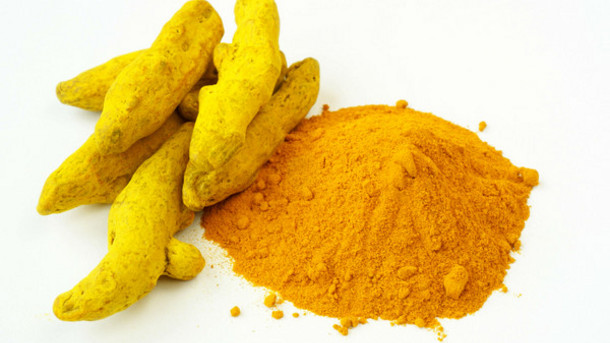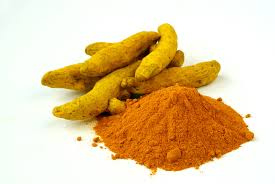I see a lot of posts on social media that says , “take this for health” or “don’t eat this” , honestly, it is downright confusing. “What is what” these days? Turmeric is very confusing to me. I mean, I know it is healthy because of the research out there but show me some honest to goodness studies that tell me someone was helped. I don’t want to be pessimistic but I guess I have enough of a science background that I’m skeptical and not enough to really “know”. So I will try and weed through the studies and find out what is true.
Turmeric is the “now” supplement. It is gaining momentum the way Omega’s did a few years back. There are many studies involving turmeric. The most difficult part of turmeric studies is the subject of bio availability . We don’t seem to absorb it well and it doesn’t seem to stay in the blood stream. I’m going to outline some studies, bio availability issues, and current research as well as recommendations from other experts. This post has been hours in the making, because of the amount of research out there, so I won’t be able to cover it all , just highlight. And , please, research, research, research, you may just discover that you’ve been taking the wrong supplements.
What is Turmeric
Turmeric comes from the root of the Curcuma longa plant and has a tough brown skin and a deep orange flesh. Turmeric has long been used as a powerful anti-inflammatory in both the Chinese and Indian systems of medicine. Turmeric was traditionally called “Indian saffron” because of its deep yellow-orange color and used throughout history as a condiment, healing remedy and textile dye. Turmeric supplement sales have increased 21% to and expected to total 235 million.
Curcumin is the major bioactive component of the spice herb turmeric or Curcuma longa L., Researchers believe curcumin is the most biologically active curcuminoid in turmeric.
Demonstrated benefits:
- cancer
- immune deficiencies
- cardiovascular health
- Alzheimer’s
- diabetes
- arthritis
- Crohn’s disease
Studies
A small Phase II study at MD Anderson in 2008 indicated that in patients with pancreatic cancer, daily dosage of curcumin without chemotherapy helped slow tumor growth in some patients and reduced the size of a tumor in one patient.
Bharat Aggarwal, Ph.D., professor in the Department of Experimental Therapeutics, continues to conduct and analyze a number of studies that focus on the effects of curcumin on cancer. He says he believes it is effective on all forms of the disease due to its suppression of angiogenesis (blood vessel growth) of tumor cells.
“No cancer has been found, to my knowledge, which is not affected by curcumin,” Aggarwal says. “The reason curcumin is so effective against cancer is that it hits not just a single target or cell signaling pathway but dozens of targets implicated in cancer.”
In Biochemical Pharmacology (September 2005), human breast cancer cells were injected into mice, and the resulting tumors removed to simulate a mastectomy.
What they did: The mice were then divided into four groups. One group received no further treatment and served as a control. A second group was given the cancer drug paclitaxel (Taxol); the third got curcumin, and the fourth was given both Taxol and curcumin.
After five weeks, only half the mice in the curcumin-only group and just 22% of those in the curcumin plus Taxol group had evidence of breast cancer that had spread to the lungs.
But 75% of the mice that got Taxol alone and 95% of the control group developed lung tumours.
In another laboratory study of human non-Hodgkin’s lymphoma cells published in Biochemical Pharmacology (September 2005), University of Texas researchers showed that curcumin inhibits the activation of NF-kappaB, a regulatory molecule that signals genes to produce a slew of inflammatory molecules (including TNF, COX-2 and IL-6) that promote cancer cell growth. In addition, curcumin was found to suppress cancer cell proliferation and to induce cell cycle arrest and apoptosis (cell suicide) in the lung cancer cells. Early phase I clinical trials at the University of Texas are now also looking into curcumin’s chemopreventive and therapeutic properties against multiple myeloma and pancreatic cancer, and other research groups are investigating curcumin’s ability to prevent oral cancer.
And still another study concludes that “A pill combining chemicals found in turmeric, and onions reduces both the size and number of precancerous lesions in the human intestinal tract” published in .August 2006 issue of Clinical Gasteroenterology and Hepatology.
The Problem- Bioavailability
- Poor solubility
- Low absorption from gut
- Rapid metablolism
- Rapid elimination from body
Bioavailability Studies:
A 1998 paper in the journal, Planta Medica- In this case, human subjects (eight per group) were given 2 grams of curcumin alone.
It was taken together with 20 mg of piperine. Unlike the rats, humans show virtually no curcumin in their bloodstream (peak concentration of 0.006 micrograms per mL). However, those also taking the piperine-containing product had average peak blood concentrations of 0.18 micrograms per mL but, even in this case, blood levels were almost zero within one hour of taking the dose.
In MOLECULAR PHARMACEUTICS VOL. 4, NO. 6 BCM -95 Shows enhanced bioavailability with Turmeric Oil with better absorption and higher retention in the blood.
Breaking Studies Down:
In the above example they use 2 grams Curcumin- This means:
Turmeric has about has 2% curcumin by weight. A tablespoon of turmeric, which weighs 6.8 grams, contains about 0.136 gram curcumin, or 136 milligrams. That is a lot…so what do we do?
Ways that companies have tried to increase absorption:
Adding Biperine- extracted from Black Pepper- some studies show increase absorption by 1.5 fold
Adding Phospholids– studies show increase absorption by 3.4 fold
Micro emulsion system of curcumin,-which consists of Capryol 90 (oil), Cremophor RH40 (surfactant), and Transcutol P aqueous solution (co-surfactant)Emulsions- increase absorption by 22.6 fold
Curcumin with a micellar surfactant (polysorbate) shown to increase the absorption of curcumin in mice 9.0-fold
Polylactic-co-glycolic acid (PLGA) and PLGA-polyethylene glycol (PEG) (PLGA-PEG) blend nanoparticles increased curcumin absorption by 15.6- and 55.4-fold, respectively, compared to an aqueous suspension of curcumin in rats .
Ground Breaking Study and Research
Nutrition Journal 2014, 13:11 doi:10.1186/1475-2891-13-11 “Different strategies have been pursued to improve the absorption of curcumin including nanocrystals, emulsions, liposomes, self-assemblies and nanogels . In animals, co-administration of curcumin with an extract obtained from the black pepper has been shown to increase the absorption (AUC) of curcumin by 1.5-fold. Whereas, a complex of curcumin with phospholipids increased absorption by 3.4-fold and a formulation of curcumin with a micellar surfactant (polysorbate) has been shown to increase the absorption of curcumin in mice 9.0-fold. A micro emulsion system of curcumin, which consists of Capryol 90 (oil), Cremophor RH40 (surfactant), and Transcutol P aqueous solution (co-surfactant) has been shown to increase the relative absorption in rats by 22.6-fold . Polylactic-co-glycolic acid (PLGA) and PLGA-polyethylene glycol (PEG) (PLGA-PEG) blend nanoparticles increased curcumin absorption by 15.6- and 55.4-fold, respectively, compared to an aqueous suspension of curcumin in rats .”
Results: A formulation of curcumin with a combination of hydrophilic carrier, cellulosic derivatives and natural antioxidants significantly increases curcuminoid appearance in the blood in comparison to unformulated standard curcumin CS (45.9-fold), CTR (34.9-fold) and CP (5.8-fold).
Go here for the study :
Breaking It Down
Companies in Ground Breaking study
4th place Sabinsa Curcumin – As far as I can see the product used was C3 Reduct ingredient standardized . Their original product uses C3 with Bioperine (extract from Black Pepper which enhances absorption. Doctor’s Best Curcumin C3 Complex with BioPerine (500 Mg), Capsules, 120-Count
3rd place Europharma (BCM- 95) micronizes Curcumin powder and uses turmeric oil EuroPharma – Terry Naturally CuraMed with BCM-95 750 mg. – 60 Softgels
2nd place Indena ( Meriva) uses phospholipids and a technology called phytosome THORNE RESEARCH – Meriva-SR – 120ct [Health and Beauty]
1st place OminActive (CurcuWIN–Can’t find where this is available yet). This was the winner that increases bioavailablity by use of a molecular dispersion process hydrophilic carrier, cellulosic derivatives and natural antioxidants
Other Recommended Products:
Longvida– recommended by Dr. Josh Truett is: 65 times more bioavailable than unformulated curcumin based on Cmax, and more than 100 times more bioavailable based on Area Under the Curve (AUC). One groundbreaking finding over the course of several bioavailability studies using different doses, is that dosing of Longvida leads to therapeutic levels of free (not inactivated or glucuronidated) curcumin in the bloodstream and target tissues.
Longvida uses lipid-based forms of curcumin to increase the bioavailability.
Go here for the study: Longvida Study
Still another product-
Theracumin– they increase bioavailability by decreasing the particle size to 0.19 to 0.3 μm—a reduction of over 100 times. This reduced particle size curcumin is then mixed with natural emulsifiers to suspend it in a highly bioavailable mixture that is then dried. The result of all of this technology is a dramatic increase in the absorption of curcumin as compared to all other commercial forms that have been tested, including other enhanced forms of curcumin.
Go here for the study: Theracurmin Study
Integrative Theraputics Theracurmin Vegetarian Capsules, 45 Count, 600 mg
Still Confused?
I am personally going to change my supplement to either Meriva, BCM95, or LongVida. Please do research and come up with a supplement that has human studies associated with it.
Notes:
These statements have not been evaluated by the Food and Drug Administration. These products are not intended to diagnose, treat, cure or prevent any disease. Please consult your healthcare practitioner before taking any medication or health supplements.
I encourage you to always research before you buy supplement or attempt to treat any illness. Always consult your healthcare practitioner.
*This site contains affiliate links. That means that when you click on a link and make a purchase, I may make a commission. However, the amount that you pay will not change.


You must be logged in to post a comment.